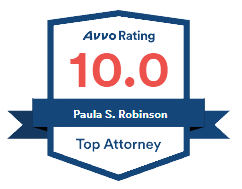When injured on the job in Pennsylvania, you need to know important workers compensation laws. Abiding by these laws can potentially make a difference in whether you receive benefits. These guidelines will help you understand a bit about Pennsylvania Workers’ Compensation laws:
• Hire an attorney who has extensive experience with workers’ compensation cases – Some attorneys have a long list of different types of cases that they handle, but to ensure that you receive the best assistance in understanding the complex workers’ compensation statutes, you need an attorney who actually specializes in the practice of workers’ compensation. Attorney Paula Robinson of Robinson Law LLC is the answer. When your attorney is certified as a specialist in the practice of workers’ compensation in the Commonwealth of Pennsylvania, that means they are knowledgeable of the laws of Pennsylvania workers’ compensation, and understand how to proceed in the pursuit of compensation benefits for you. Even if your employer fights your claim.
• You are covered even if you are not full-time – Every worker is to be covered by workers’ compensation insurance in Pennsylvania. The Pennsylvania Department of Labor and Industry explains that “Employers must provide workers’ compensation (WC) coverage for all of their employees, including seasonal and part-time workers. Nonprofit corporations, unincorporated businesses and even employers with only one employee must comply with the Act’s requirements.”
• There is no waiting period to receive benefits – When a worker applies for Social Security Disability (SSD) benefits, there is a “waiting period” of up to 5 months from the application date before the worker begins receiving benefits. Pennsylvania Workers’ Compensation law provides that “Coverage begins on the date of hire.” Medical benefits are payable from the date of injury.
• Benefits are not payable when injuries are caused by you – Section 301(a) of the Pennsylvania Workers’ Compensation Act states, “Provided, That no compensation shall be paid when the injury or death is intentionally self-inflicted, or is caused by the employee’s violation of law, including, but not limited to, the illegal use of drugs… and that “In cases where the injury or death is caused by intoxication, no compensation shall be paid if the injury or death would not have occurred but for the employee’s intoxication.”
• The burden of proof is on the employee – Employees are subjected to drug and alcohol testing when seeking treatment for work-related injuries because workers’ compensation laws state that the burden of proof is on the employee to prove that they suffered a disabling work injury while in the course and scope of their employment.
• General damages are not payable – There are no payable workers’ compensation benefits for damages such as pain and suffering or punitive damages.
When you are injured on the job, you need an attorney who is experienced in fighting for the workers of Pennsylvania. Contact Paula Robinson at Robinson Law LLC to see how we can help you.









